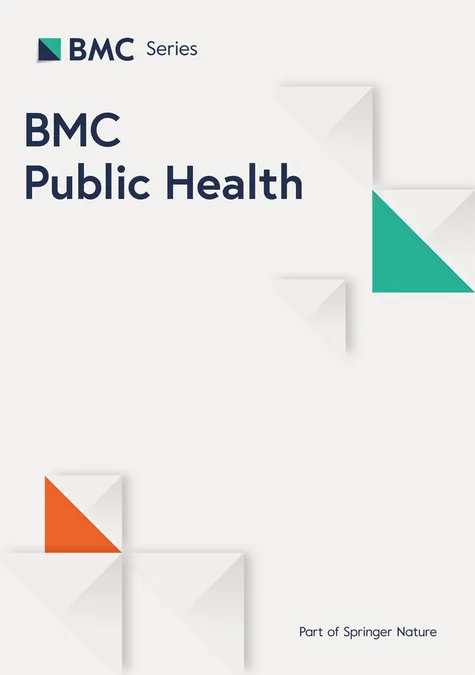
Calling for Collaborative Efforts to Enhance Digital Health Literacy in Sweden: Insights from Policy Makers
2024-09-30
Introduction
In a world where digitalization reshapes our daily lives, from communication to healthcare, the importance of digital health literacy cannot be overstated. It represents the ability to efficiently read, write, and communicate health-related information through technology, as well as the aptitude to critically assess the credibility of online health data and utilize this information effectively. With the advent of digital health technologies, individuals can now access vital health information, track personal health goals, and connect effortlessly with healthcare providers. Yet, the challenge remains: can everyone leverage this digital landscape equitably?
The Digital Health Divide
A critical concern is the “digital health divide,” which signifies the disparity in capability to engage with available digital health resources. Millions globally still risk missing out on essential health services due to insufficient digital competencies. Addressing these inequalities must be central to health policies to ensure that everyone can effectively utilize the benefits of digital health technologies.
European Initiatives to Bolster Digital Health Literacy
Several initiatives are underway across Europe to bolster digital health literacy. Forged under the EU's Horizon 2020 program, the Digital Health Europe (DHE) Project promotes health innovations and develops tools to uplift digital health literacy. Additionally, initiatives like the eHealth Network aim to enhance interoperability of electronic health systems and elevate the digital skills of both healthcare professionals and the wider public. The European Digital Education Action Plan and the Joint Action on Health Equity Europe (JAHEE) supplement these efforts, focusing on integrating digital health literacy into national strategies, thereby reducing health inequalities.
The Situation in Sweden
In Sweden, the scenario is similar. Health literacy notably affects public health outcomes, especially for older adults and migrant communities. Research indicates that many older adults grapple with limited health literacy, impacting their ability to understand and interact with health information. For migrants, culturally adjusted health communications can significantly assist in improving their integration.
The IDEAHL Project
The recent EU project, Improving Digital Empowerment for Active Healthy Living (IDEAHL), sought to amplify digital health literacy across Europe. This initiative employed co-creation workshops to gather insights from various stakeholders, including citizens, health care providers, and policymakers. The focus in Sweden was particularly on understanding the views of policymakers regarding the potential benefits and barriers of implementing a European digital health literacy strategy.
Insights from the Workshops
These workshops revealed compelling insights from attendees, composed of representatives from various government agencies across Sweden. The key outcomes highlight an urgent call for a cohesive national strategy to reinforce digital health literacy throughout the nation. Participants observed a noticeable lag in Sweden compared to other Nordic countries in adopting digital advancements, advocating for an inclusive framework that integrates health literacy into existing digitalization strategies.
Challenges for Vulnerable Groups
Significantly, many vulnerable groups struggle with attaining even a fundamental level of digital health literacy. The workshops underscored that health information must be tailored to fit the age and context of these groups to foster better understanding. Additionally, individual digital literacy levels directly influence the ability to navigate health platforms and assess the reliability of information. Participants echoed that designing user-friendly digital services could aid in overcoming barriers posed by complicated algorithms that dictate online information pathways.
Ethical and Social Discussions
Critical discussions also centered on ethical and social impacts, emphasizing a need for inclusive measures. Specific groups, such as individuals with intellectual disabilities and young people less adept at source criticism, must receive targeted support to bolster their digital health literacy. Discussions raised important privacy concerns, particularly for vulnerable populations who may be unable to independently access their health information without assistance.
Strategic Information Dissemination
The workshops also highlighted the need for a strategic approach to disseminate health information effectively. Utilizing both digital platforms and traditional methods like postal notifications was suggested to reach diverse audiences. This dual approach can ensure that digital health promotion measures connect with individuals on various levels of technological access and understanding.
The Role of Education
Participants recognized the vital role of education systems in instilling critical assessment skills regarding health information. Empowering younger generations with these essential skills will better equip them to navigate an increasingly digital health landscape.
Conclusion
Overall, the Swedish policymakers' insights reveal an urgent call for collaboration and strategic action to improve digital health literacy across the nation. The findings not only enhance our understanding of the barriers to digital health engagement but also pave the way for initiatives that ensure equitable access to health information through the digital divide. As the digital realm continues to expand its influence over healthcare practices, establishing a robust foundation for health literacy will be paramount to safeguarding public health and mitigating disparities.
The drive towards refining health literacy in Sweden is not just a matter of enhancing individual agency; it is an essential strategy for fostering better health outcomes among all populations, particularly those most at risk. The time to act is now, as a collective effort toward digital empowerment could yield life-changing benefits for Swedish citizens and beyond.




 Brasil (PT)
Brasil (PT)
 Canada (EN)
Canada (EN)
 Chile (ES)
Chile (ES)
 España (ES)
España (ES)
 France (FR)
France (FR)
 Hong Kong (EN)
Hong Kong (EN)
 Italia (IT)
Italia (IT)
 日本 (JA)
日本 (JA)
 Magyarország (HU)
Magyarország (HU)
 Norge (NO)
Norge (NO)
 Polska (PL)
Polska (PL)
 Schweiz (DE)
Schweiz (DE)
 Singapore (EN)
Singapore (EN)
 Sverige (SV)
Sverige (SV)
 Suomi (FI)
Suomi (FI)
 Türkiye (TR)
Türkiye (TR)